Datasheet
Year, pagecount:2011, 4 page(s)
Language:English
Downloads:4
Uploaded:May 18, 2020
Size:494 KB
Institution:
-
Comments:
Attachment:-
Download in PDF:Please log in!
Comments
No comments yet. You can be the first!Content extract
Source: http://www.doksinet Guidelines for the Portfolio Introduction – What is the Portfolio? The portfolio is designed as an instrument for documentation and self-reflection. Basically, it enables students to critically examine their learning process and keep track of their professional development during their studies of English education at Goethe University Frankfurt. As such, it represents a work in progress for prospective teachers Simply put, students must work with the portfolio throughout their studies. At the end of their education, it will display the entirety of their subject-specific skills and experiences. The structure of the portfolio comprises two parts: the language portfolio and the teacher portfolio. The language portfolio focuses on students’ language skills, intercultural experiences and general learning goals with regard to the English language. The teacher portfolio is more specific and centers on the English teaching profession in the context of
university studies. Both portfolio parts feature a number of tables and essay questions which ask students to reflect on the aforementioned topics. As an academic document, the portfolio forms an essential part of the study program for prospective English teachers at Goethe University Frankfurt (English L1, L2, L3 & L5). It is introduced in the seminar Introduction to Foreign Language Teaching in the first semester. Students have to submit the portfolio at the end of the term in order to receive credit for the course (i.e Modul-Schein) The grade of the course will be based on the portfolio (two specific essays), the in-class presentation and general participation. Additionally, the portfolio should be taken into consideration in other courses, each semester. Students should continually update their portfolio. They should expand on essays, add new information/materials and regularly monitor their learning process. The goal is to document students’ personal development. It is also
a record of personal achievements The portfolio is furthermore an important official document in the English didactics department at Goethe University Frankfurt. A complete portfolio is a prerequisite for the final exam registration (Anmeldung zur Staatsexamensprüfung). Students who fail to submit their portfolio cannot register for their final English exam. Thus, students are strongly encouraged to work independently with the portfolio (professors and instructors are not obligated to remind students of the portfolio all the time!). Moreover, students who wish to study abroad and require references from didactics professors and instructors (i.e letters of recommendation) have to display a well-maintained portfolio. Hence, the portfolio should be an indispensable companion of each English education major (Lehramtsstudent im Fach Englisch). As for questions regarding the portfolio, students may direct them at the tutors of the seminar Introdution to Foreign Language Teaching. Source:
http://www.doksinet Do it yourself: How you work with the portfolio A few general pointers: It is important to keep in mind that the portfolio, in spite of its personal nature, still represents an official document. Therefore, you should pay attention to grammar rules and avoid a conversational tone with idioms and colloquial language (no “it’s” but “it is”; no “ain’t” etc.) Essays should be well-structured, with a coherent progression of ideas (do not submit inscrutable text-blocks; use paragraphs and connectors such as “therefore, moreover, but, however, additionally” to structure your essays) and clearly discernible parts: an introductory beginning, a developing middle and a conclusion; the writing should be clear and comprehensible. Essays do not have to be ten pages long but they should exceed a ¼ page at least. Do not forget to illustrate your arguments with specific examples. Remember that two essays in the portfolio will be graded, as part of the seminar
Introduction to Foreign Language Teaching. These essays are reflections on the seminar itself and your presentation (see 2.1) The following paragraphs include a number of guidelines which help you to complete the portfolio satisfactorily. If you adhere to these formal guidelines, your portfolio will conform to the general requirements. Please consult the portfolio’s table of contents to navigate through the following comments. If you have any questions please see the tutors In the general section, you have to write a CV (curriculum vitae). The CV should feature your personal information, educational background and professional experiences. Do not write a text. Simply write down notes, similar to a German Lebenslauf Please add a current photo. Part Ι, the language portfolio, is composed of two sections: the language passport (1.1 – 12) and the language biography (2.1 – 22) In 1.1, you have to fill out a self-assessment grid In other words, you have to evaluate your own language
skills. The grid is modeled on the Common European Framework of Reference for Languages (CEF). Please read the descriptors and check the boxes on the right side of the grid (use this symbol: √). The first box indicates whether you have already mastered the skill The second box shows whether you would like to achieve (or even improve) this skill. Be honest. This section will not affect your overall grade! 1.2 constitutes another grid This time, please list your excursions into English-speaking countries. Note the time and the duration, the country and the purpose of your stay (eg exchange program, language course, vacation). It is important that you briefly explain how this excursion affected your language learning process and personal view of the country and its culture (e.g new vocabulary, colloquialisms/cultural practices: Halloween, birthday parties, student-teacher interaction etc.) You may write short sentences or key points If you have not yet been abroad, leave the table
blank. 1.3 offers you the opportunity to list the language certificates you obtained Certificates are official documents issued by institutions or organizations. Examples include the TOEFL and Source: http://www.doksinet The Cambridge Certificate. Certificates from language institutes qualify as well You do not have to include the original certificate; a copy will do but is not necessary. In 2.1, you have to write a brief essay about your language learning biography You should focus on three central questions: How would you describe and evaluate your English language education in high school (teachers, topics, teaching methods)? What do you do in order to improve your English language skills (reading, watching films, listening to podcasts etc.)? And which intercultural experiences, if any, affected your language learning process and shaped your view of the culture of an English-speaking country. Please use concrete examples to illustrate your points. In 2.2, you can formulate your
personal language learning goals You should relate these goals to your profession as an English teacher. In other words, what would you like to learn in order to become a good English teacher? For example, would you like to be able to understand political debates on television (useful in upper grades) or describe the entire selection of a supermarket (lower grades)? Part ΙΙ, the teacher portfolio, consists of three sections: a documentation of your practical experiences, a reflection of your university education and a dossier for your academic work. 1.1 asks you to document your field experience in pedagogy Please indicate the duration, the type of pedagogical activity (high school teaching, kindergarten, volunteer work) and explain how it affected your personal and professional development as a prospective teacher (i.e was it encouraging/discouraging, insightful/unchallenging, strenuous/inspiring?). 1.2: This is a personal essay which asks you to explore the reasons why you chose to
become an English teacher. While there are numerous valid general reasons (ie money, job security, altruism), the essay should specifically focus on your personal motives. Please be advised that you must not just list clichés such as the love for children or cooperative work. Be more specific. Are there any books/films/songs that you like and which you would like to use as teaching material? Did one of your former teachers inspire you to follow in their footsteps? Do you have creative ideas to teach English? 2.1 may be the most important part of the portfolio, at least in your first semester, as it constitutes the basis for your grade in the seminar Introduction to Foreign Language Teaching. These two reflections will be thoroughly evaluated by your professors Please do not write more than one and a half pages. Write concisely and clearly You must incorporate one or two references in your reflections (a reference or a direct quotation from an academic text). Do not forget to list the
reference at the end of your essay (according to the Didaktik Style Sheet which is accessible online). In the first reflection, you have to take stock of the seminar Introduction to Foreign Language Teaching. You may begin with a general assessment of the course and then focus on one or a few topics specifically. What did you learn and how does it help you to become a good teacher? In the second reflection, you should reflect critically on your presentation. Outline the preparation and the execution Be critical: What would you change or do differently in order to improve the presentation? Source: http://www.doksinet Section 2.2 documents your TEFL competences, ie the skills you acquired in university seminars at Goethe University Frankfurt. Please list all the English courses you attended and specify what you did (e.g term paper, presentation, essay) Then, pick one or two classes (each semester) and explain how they contributed to your education as an English teacher. Your remarks
should be brief and clear. 2.3 is your personal learning space where you should list competences you would like to acquire in the course of your studies. Are there any topics you would like to explore in seminars (e.g religion in the United States, differences between American and British English, Australian literature etc.) Please state why you consider these competences important for your future profession. Finally, section 3 allows you to illustrate your abilities in the form of work samples. Include essays, group work products, term papers and other academic work that highlights your skills as a teacher. You may briefly explain why you regard the samples as important and relevant
university studies. Both portfolio parts feature a number of tables and essay questions which ask students to reflect on the aforementioned topics. As an academic document, the portfolio forms an essential part of the study program for prospective English teachers at Goethe University Frankfurt (English L1, L2, L3 & L5). It is introduced in the seminar Introduction to Foreign Language Teaching in the first semester. Students have to submit the portfolio at the end of the term in order to receive credit for the course (i.e Modul-Schein) The grade of the course will be based on the portfolio (two specific essays), the in-class presentation and general participation. Additionally, the portfolio should be taken into consideration in other courses, each semester. Students should continually update their portfolio. They should expand on essays, add new information/materials and regularly monitor their learning process. The goal is to document students’ personal development. It is also
a record of personal achievements The portfolio is furthermore an important official document in the English didactics department at Goethe University Frankfurt. A complete portfolio is a prerequisite for the final exam registration (Anmeldung zur Staatsexamensprüfung). Students who fail to submit their portfolio cannot register for their final English exam. Thus, students are strongly encouraged to work independently with the portfolio (professors and instructors are not obligated to remind students of the portfolio all the time!). Moreover, students who wish to study abroad and require references from didactics professors and instructors (i.e letters of recommendation) have to display a well-maintained portfolio. Hence, the portfolio should be an indispensable companion of each English education major (Lehramtsstudent im Fach Englisch). As for questions regarding the portfolio, students may direct them at the tutors of the seminar Introdution to Foreign Language Teaching. Source:
http://www.doksinet Do it yourself: How you work with the portfolio A few general pointers: It is important to keep in mind that the portfolio, in spite of its personal nature, still represents an official document. Therefore, you should pay attention to grammar rules and avoid a conversational tone with idioms and colloquial language (no “it’s” but “it is”; no “ain’t” etc.) Essays should be well-structured, with a coherent progression of ideas (do not submit inscrutable text-blocks; use paragraphs and connectors such as “therefore, moreover, but, however, additionally” to structure your essays) and clearly discernible parts: an introductory beginning, a developing middle and a conclusion; the writing should be clear and comprehensible. Essays do not have to be ten pages long but they should exceed a ¼ page at least. Do not forget to illustrate your arguments with specific examples. Remember that two essays in the portfolio will be graded, as part of the seminar
Introduction to Foreign Language Teaching. These essays are reflections on the seminar itself and your presentation (see 2.1) The following paragraphs include a number of guidelines which help you to complete the portfolio satisfactorily. If you adhere to these formal guidelines, your portfolio will conform to the general requirements. Please consult the portfolio’s table of contents to navigate through the following comments. If you have any questions please see the tutors In the general section, you have to write a CV (curriculum vitae). The CV should feature your personal information, educational background and professional experiences. Do not write a text. Simply write down notes, similar to a German Lebenslauf Please add a current photo. Part Ι, the language portfolio, is composed of two sections: the language passport (1.1 – 12) and the language biography (2.1 – 22) In 1.1, you have to fill out a self-assessment grid In other words, you have to evaluate your own language
skills. The grid is modeled on the Common European Framework of Reference for Languages (CEF). Please read the descriptors and check the boxes on the right side of the grid (use this symbol: √). The first box indicates whether you have already mastered the skill The second box shows whether you would like to achieve (or even improve) this skill. Be honest. This section will not affect your overall grade! 1.2 constitutes another grid This time, please list your excursions into English-speaking countries. Note the time and the duration, the country and the purpose of your stay (eg exchange program, language course, vacation). It is important that you briefly explain how this excursion affected your language learning process and personal view of the country and its culture (e.g new vocabulary, colloquialisms/cultural practices: Halloween, birthday parties, student-teacher interaction etc.) You may write short sentences or key points If you have not yet been abroad, leave the table
blank. 1.3 offers you the opportunity to list the language certificates you obtained Certificates are official documents issued by institutions or organizations. Examples include the TOEFL and Source: http://www.doksinet The Cambridge Certificate. Certificates from language institutes qualify as well You do not have to include the original certificate; a copy will do but is not necessary. In 2.1, you have to write a brief essay about your language learning biography You should focus on three central questions: How would you describe and evaluate your English language education in high school (teachers, topics, teaching methods)? What do you do in order to improve your English language skills (reading, watching films, listening to podcasts etc.)? And which intercultural experiences, if any, affected your language learning process and shaped your view of the culture of an English-speaking country. Please use concrete examples to illustrate your points. In 2.2, you can formulate your
personal language learning goals You should relate these goals to your profession as an English teacher. In other words, what would you like to learn in order to become a good English teacher? For example, would you like to be able to understand political debates on television (useful in upper grades) or describe the entire selection of a supermarket (lower grades)? Part ΙΙ, the teacher portfolio, consists of three sections: a documentation of your practical experiences, a reflection of your university education and a dossier for your academic work. 1.1 asks you to document your field experience in pedagogy Please indicate the duration, the type of pedagogical activity (high school teaching, kindergarten, volunteer work) and explain how it affected your personal and professional development as a prospective teacher (i.e was it encouraging/discouraging, insightful/unchallenging, strenuous/inspiring?). 1.2: This is a personal essay which asks you to explore the reasons why you chose to
become an English teacher. While there are numerous valid general reasons (ie money, job security, altruism), the essay should specifically focus on your personal motives. Please be advised that you must not just list clichés such as the love for children or cooperative work. Be more specific. Are there any books/films/songs that you like and which you would like to use as teaching material? Did one of your former teachers inspire you to follow in their footsteps? Do you have creative ideas to teach English? 2.1 may be the most important part of the portfolio, at least in your first semester, as it constitutes the basis for your grade in the seminar Introduction to Foreign Language Teaching. These two reflections will be thoroughly evaluated by your professors Please do not write more than one and a half pages. Write concisely and clearly You must incorporate one or two references in your reflections (a reference or a direct quotation from an academic text). Do not forget to list the
reference at the end of your essay (according to the Didaktik Style Sheet which is accessible online). In the first reflection, you have to take stock of the seminar Introduction to Foreign Language Teaching. You may begin with a general assessment of the course and then focus on one or a few topics specifically. What did you learn and how does it help you to become a good teacher? In the second reflection, you should reflect critically on your presentation. Outline the preparation and the execution Be critical: What would you change or do differently in order to improve the presentation? Source: http://www.doksinet Section 2.2 documents your TEFL competences, ie the skills you acquired in university seminars at Goethe University Frankfurt. Please list all the English courses you attended and specify what you did (e.g term paper, presentation, essay) Then, pick one or two classes (each semester) and explain how they contributed to your education as an English teacher. Your remarks
should be brief and clear. 2.3 is your personal learning space where you should list competences you would like to acquire in the course of your studies. Are there any topics you would like to explore in seminars (e.g religion in the United States, differences between American and British English, Australian literature etc.) Please state why you consider these competences important for your future profession. Finally, section 3 allows you to illustrate your abilities in the form of work samples. Include essays, group work products, term papers and other academic work that highlights your skills as a teacher. You may briefly explain why you regard the samples as important and relevant
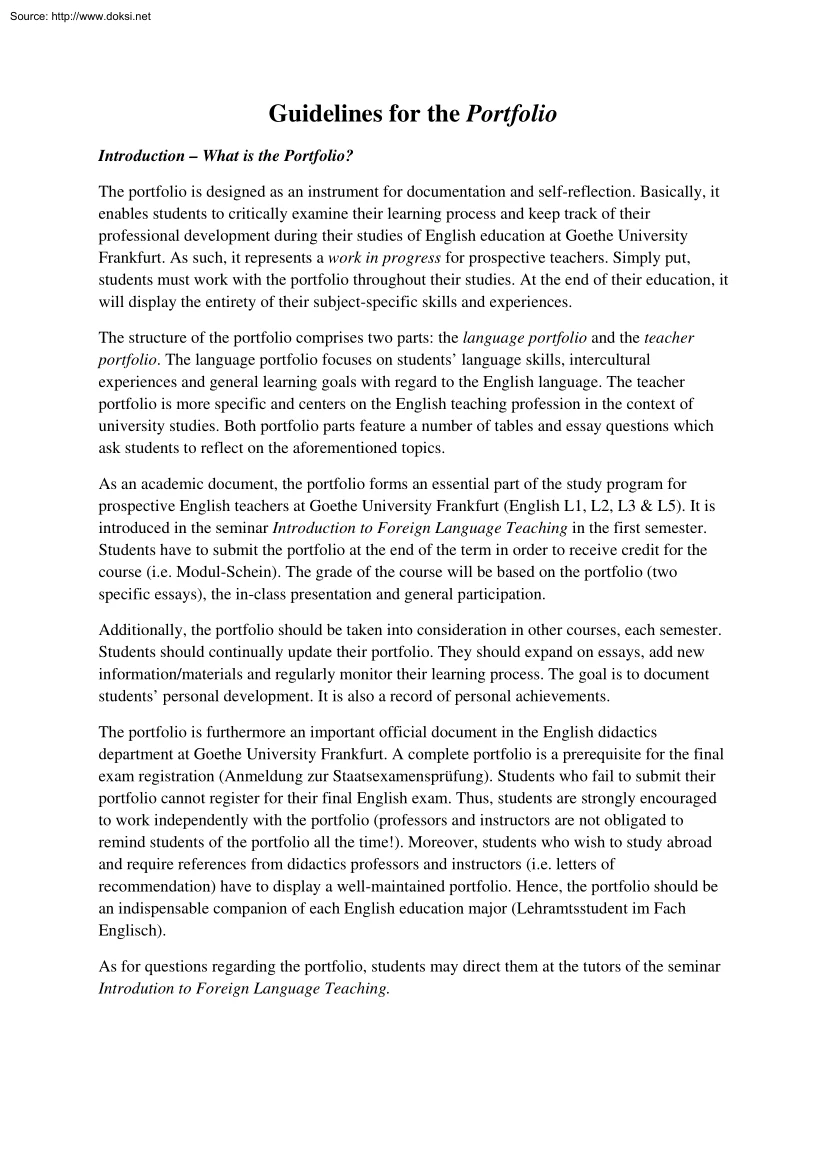
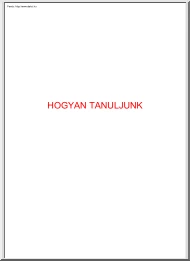
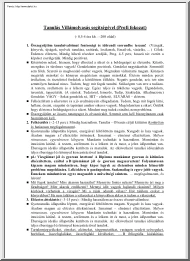
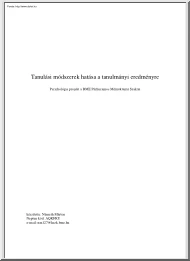
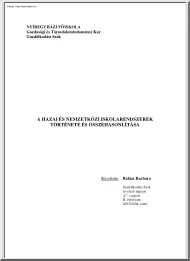
 Just like you draw up a plan when you’re going to war, building a house, or even going on vacation, you need to draw up a plan for your business. This tutorial will help you to clearly see where you are and make it possible to understand where you’re going.
Just like you draw up a plan when you’re going to war, building a house, or even going on vacation, you need to draw up a plan for your business. This tutorial will help you to clearly see where you are and make it possible to understand where you’re going.